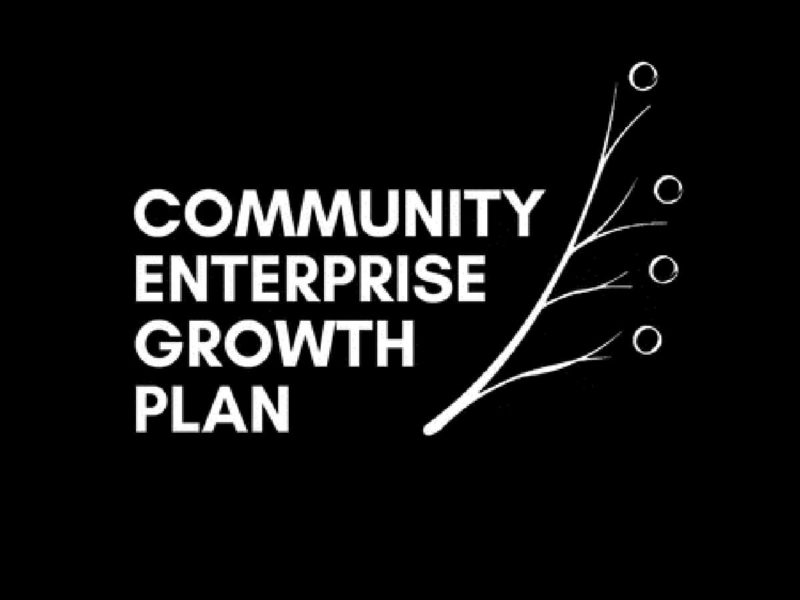09 June 2022
Use “precious” Dormant Assets to grow business in communities, says new coalition
A 12-week consultation on the future use of dormant assets in England is expected to be launched this summer. The expanded scheme could release more than £880m additional funds for charities and social enterprises.
A new ‘Community Enterprise Growth Plan’ focuses on the untapped potential for growing enterprises with a social purpose across the country, particularly in places and communities that have been deprived of investment in the past. This includes areas identified by the index of multiple deprivation and those led by or serving protected groups such as people from ethnic minority backgrounds, those with an impairment or facing gender bias.
The plan centres on providing increased access to capital, dedicated funding to encourage the growth of trading activity, and tailored business support. The coalition giving their backing to the plan includes SEUK, Navca, Power to Change and UnLtd, among others.
It looks to leverage both private and philanthropic capital, alongside Dormant Assets – doubling the amount available to communities and ensuring the finite resources available through the scheme are used to maximum effect.
The plan builds on a strong track record of utilising Dormant Assets over 10 years to invest in social enterprises, community businesses and trading charities, and complements other proposed uses of dormant assets. It would see Dormant Assets applied to a range of tried and tested interventions to support enterprise and trading activities by VCSEs including:
- Helping smaller charities and social enterprises to access suitable and affordable finance through blending grants and loans in the places and communities most in need of investment.
- Start-up funding for a £50m Black-led social investment fund as recommended by the recent Adebowale Commission on Social Investment to tackle the current inequity in social investment.
- Supporting a vibrant network of non-profit lenders (Community Development Financial Institutions or CDFIs) that can offer affordable finance to community businesses and small enterprises in areas unable to access mainstream lending.
- Providing tailored business support and incentives for purpose-driven enterprises to grow through trading in the form of match trading initiatives coupled with learning.
Peter Holbrook CBE, Chief Executive, Social Enterprise UK said:
“This consultation marks a once-in-a-decade opportunity to decide how we use hundreds of millions of pounds to help communities. We must use this precious resource wisely. Ultimately, we know that trading is the only route to lasting transformational change. The Community Enterprise Growth Plan is a smart way to deploy limited funds to support social enterprises in places that need them. I hope that the Government listens to the social enterprise sector and experts in backing this proposal.”
Maddy Desforges, chief executive of NAVCA said:
“We know that the voluntary and community sector (VCS) plays a crucial role in building relationships, so that communities and charitable organisations can make the best use of funding. We welcome the Community Enterprise Growth Plan as a great opportunity to make a real difference to marginalised groups experiencing poverty and inequality, and we hope that the VCS is supported to make the most of this scheme.’’
Lord Victor Adebowale, Chair of the independent Commission on Social Investment said:
“The best way to level up the country is to grow social enterprises. We know it works. My Commission on Social Investment found that every pound we put into supporting social enterprise will generate several times that in new jobs, new investment and strengthening communities. We have the formula, but we need the next round of Dormant Assets to accelerate the growth of social enterprise and level up even faster.”
“Central to this has to be reaching out to parts of our society which have struggled to get access to finance and support in the past. We need more black-led businesses, more women-led businesses and more led by people with disabilities. Social enterprises have a fantastic track record in bringing new entrepreneurs into communities and this Plan will help bring opportunity to places that need it.”
Nick Temple, Chief Executive of Social Investment Business, said:
“With the right design and effective deployment, the next wave of dormant assets could have a transformative impact on the social economy. We know from experience that patient and flexible investment into charities and social enterprises can strengthen social infrastructure, build organisational resilience and create long term employment. The Community Enterprise Growth Plan sets out a clear and ambitious proposal for dormant assets funding that will build on proven work and ensure money gets quickly to the people and places that need it most.”
Sarah Gordon, CEO of the Impact Investing Institute said:
“As the UK recovers from the pandemic and faces the cost-of-living crisis, the Community Enterprise Growth plan offers an excellent opportunity for the government to collaborate with the social impact sector to drive private investment towards where it is needed most.
“By targeting support to underserved places and communities, private capital can be deployed to help tackle some of society’s most entrenched social issues, building on the strong foundations laid by local social enterprises.”
Stephen Muers, CEO, Big Society Capital said:
“Over the last decade dormant assets have played a vital role in laying the foundations for UK social impact investment. They’ve helped harness billions of pounds for charities and social enterprises to deliver positive social change to “left-behind” communities. For example, 65% of the organisations that receive capital from Big Society Capital’s portfolio alone are based in the UK’s most deprived parts of the country. The Community Enterprise Growth plan offers a massive opportunity after the pandemic to build on that progress and genuinely level up by giving power to the communities that are most in need to help themselves.”
Mark Norbury, Chief Executive of UnLtd, said:
“Bringing £880million of unused financial products out of limbo creates a real opportunity for the government, and for the UK. As we face a cost-of-living crisis and emerge out of a global pandemic it is urgent that this wealth is used in a way that creates sustainable change for our communities.
“The Community Enterprise Growth Plan will be able to double the amount invested, ensuring society’s Dormant Assets go even further to create real long term positive social impact. These collaborative plans put wealth back into the hands of the people – particularly social entrepreneurs in historically underfunded communities – uplifting UK society and the economy as a result.”
Tim Davies-Pugh, CEO of Power to Change, said:
“There are enterprising communities up and down the country who are already delivering huge change in their local area. An injection of patient, strategically targeted capital delivered by the Community Enterprise Growth Plan could unleash even greater potential for local communities and make a meaningful impact on levelling up. At Power to Change, we’ve taken the lead alongside partners to develop an approach to blended finance and seen first-hand how this can drive sustainable change locally. Kindred in Liverpool is building, nurturing and reinvesting in the city region’s social economy but it all began with patient capital and faith in the community.”
Alastair Wilson, CEO of the School for Social Entrepreneurs said:
“The Community Enterprise Growth Plan fills the missing piece in the jigsaw for trading social purpose organisations through heralding in a new category of funding and support to build the sustainability and resilience of enterprises in marginalised communities.”
Seb Elsworth, chief executive of Access – the Foundation for Social Investment said
“The Dormant Assets Act enjoyed cross-party support throughout its passage through Parliament due to a high level of consensus about the need for investment in communities. The Community Enterprise Growth Plan sets out a coherent plan for how levelling up can be achieved in practice, encouraging enterprise and empowering local communities. It would deliver much-needed investment in a practical and evidence-based way.”
Notes to editors
The existing Dormant Assets Scheme enables banks and building societies to channel funds from dormant bank and building society accounts towards good causes.
The Scheme is led by industry and backed by the government with the aim of reuniting people with their financial assets. Where this is not possible, this money goes towards social and environmental initiatives across the UK.
The scheme is set to be expanded later this year – including assets from the insurance and pensions, investment and wealth management, and securities sectors for the first time – following a consultation on the causes that should benefit from the scheme in England.
The Community Enterprise Growth Plan has been developed and supported by a range of organisations including:
- Access – the Foundation for Social Investment
- Big Society Capital
- Impact Investing Institute
- Navca
- Power to Change
- School for Social Entrepreneurs
- Social Enterprise UK
- Social Investment Business
- UnLtd
More detail can be found here including further expressions of support for the plan.
Press enquiries, please contact chloe.stables@access-si.org.uk or call 07855 847 878.




